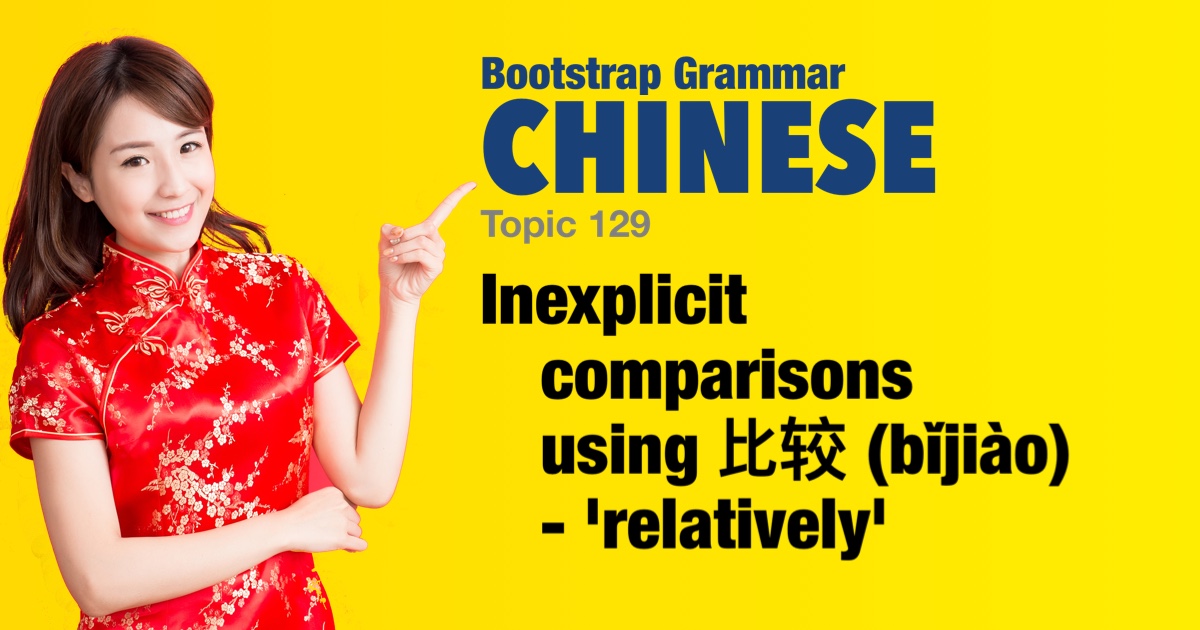Chinese grammar - Inexplicit comparisons using 比较 (bǐjiào) - 'relatively' |
|||
|
|||
In Chinese, the word 比较 (bǐjiào) is used to make a general comparison or to express a relative degree without directly comparing two specific things. It often conveys a subjective opinion. The English equivalents are 'relatively' or 'comparatively' and is like saying 'It is better' without expressing better than what. |
| Examples: | |
|
这个比较好。
zhè ge bǐjiào hǎo. This one is (relatively) better.
|
|
|
这本书比较有趣。
zhè běn shū bǐjiào yǒuqù. This book is more interesting. |
|
|
今天的天气比较凉爽。
jīntiān de tiānqì bǐjiào liángshuǎng. Today's weather is cooler.
|
|
|
我觉得这个地方比较安静。
wǒ juéde zhè gè dìfāng bǐjiào ānjìng. I think this place is relatively quiet. |
|
|
这个问题比较复杂。
zhè ge wèntí bǐjiào fùzá. This problem is relatively complex.
|
|
|
我的房间比较小。
wǒ de fángjiān bǐjiào xiǎo. My room is (relatively) smaller. |
|
|
这个电影比较无聊。
zhè gè diànyǐng bǐjiào wúliáo. This movie is relatively boring. |
|
|
他比较有耐心。
tā bǐjiào yǒu nàixīn. He is relatively patient. |
|
|
今天的任务比较简单。
jīntiān de rènwù bǐjiào jiǎndān. Today's task is (relatively) simpler. |
|
|
这个地方比较危险。
zhè gè dìfāng bǐjiào wēixiǎn. This place is (relatively) more dangerous.
|
|
|
她的中文比较流利。
tā de zhōngwén bǐjiào liúlì. Her Chinese is relatively fluent. |
|
|
这个问题比较容易。
zhè ge wèntí bǐjiào róngyì. This problem is (relatively) easier. |
|
|
他比较有经验。
tā bǐjiào yǒu jīngyàn. He is relatively experienced.
|
|
|
这个地方比较远。
zhè gè dìfāng bǐjiào yuǎn. This place is (relatively) further. |
|
 |
|



